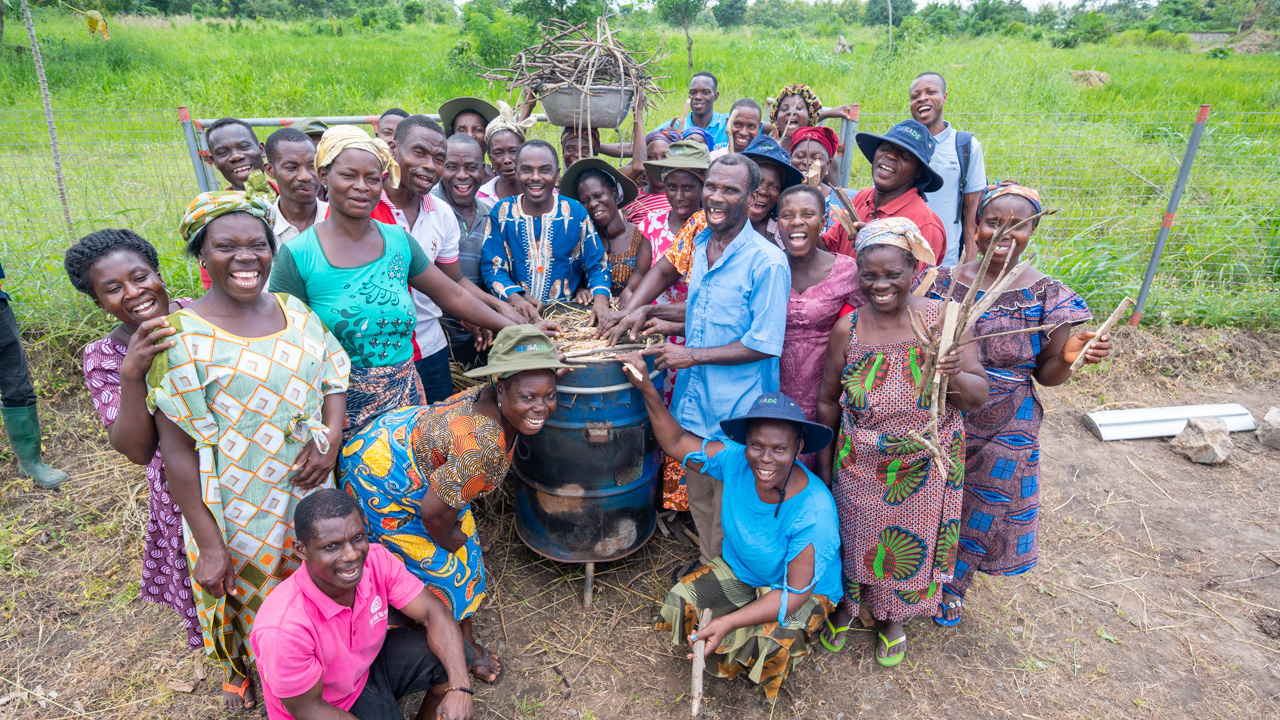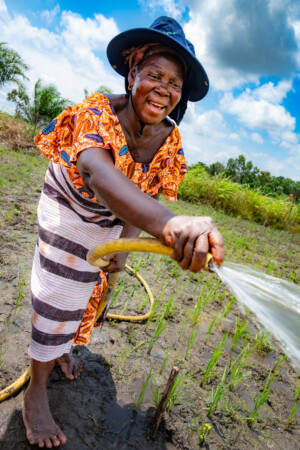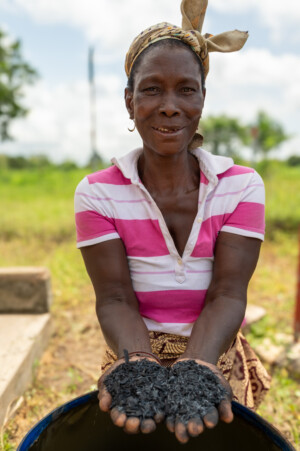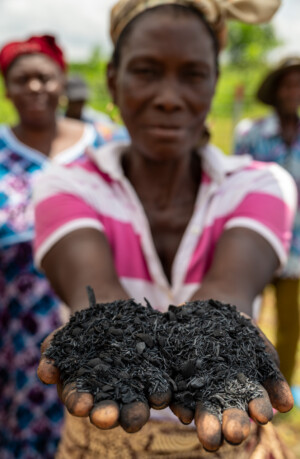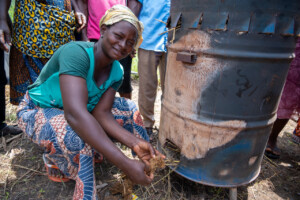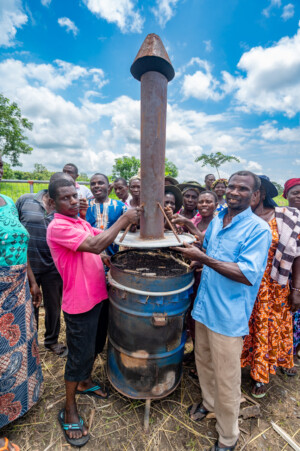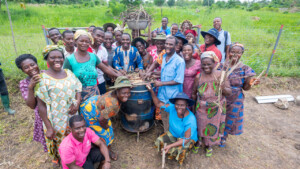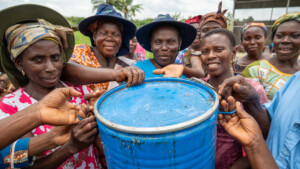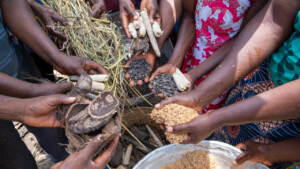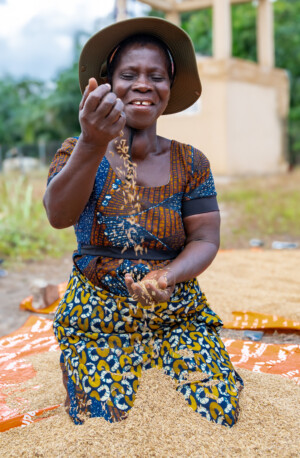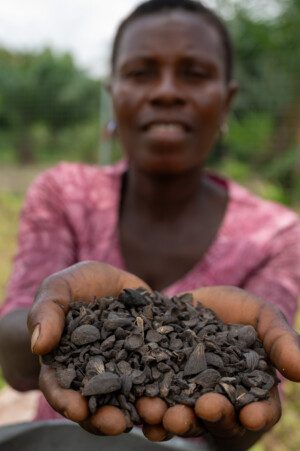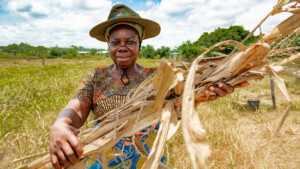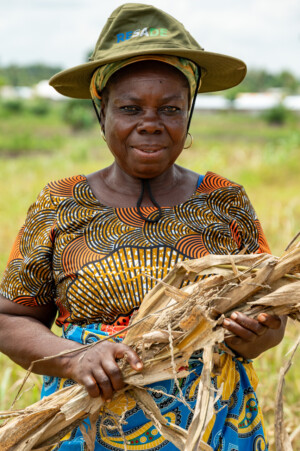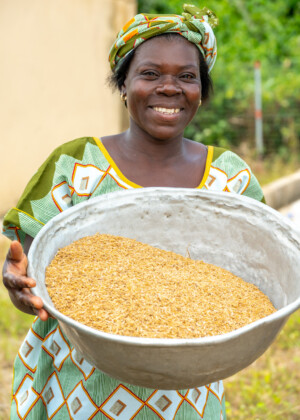The soils around the village of Atti-Apedokoe in Togo no longer produce yields like they used to. They’ve become degraded and are gradually becoming more saline.
But the villagers generate lots of organic waste. So, the Institut Togolais de Recherche Agronomique and the International Center for Biosaline Agriculture taught the locals how to make biochar.
The villagers make biochar by adding their green waste such as rice husks, maize stalks, husks and grasses to a cylinder and seal the lid so no oxygen can get in. They then put the small cylinder in a bigger container which is stuffed with flammable waste. The matter in the inside cylinder heats up to super high heat. In a process called pyrolysis, the matter carbonises to a form that is resistant to biological degradation.
The resulting biochar captures the carbon in the material and becomes like a carbon sink and thus helps mitigate climate change. The carbon is locked up for thousands of years.
But it can also be used as a soil conditioner. In sandy soils it can prevent nutrients and water from being wash away and help them be retained where the plants most need them.
Setting up a biochar ‘factory’ was inexpensive and now that the villagers know how to make biochar they will endeavour to continue in an activity which is environmentally positive.

